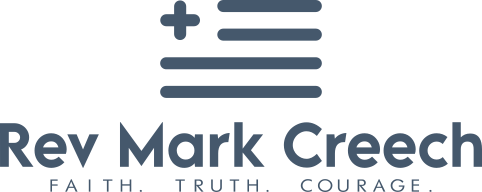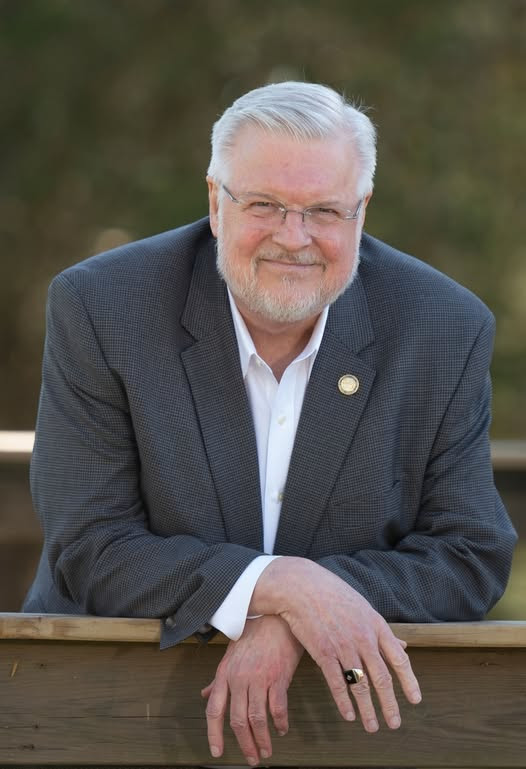Return America
July 30, 2025
July 28, 2025, will go down as a historic and electrifying day in North Carolina’s legislative history. In a rare and record-setting session, the General Assembly overrode eight of Governor Josh Stein’s vetoes, more than ever in a single day. The energy in both chambers was intense, the mood charged with purpose and conviction as lawmakers took decisive action on major issues ranging from school safety and parental rights to immigration enforcement, charter school reform, and energy costs. For Return America, which worked tirelessly for over a decade on HB 193 – Firearm Law Revisions, it was a moment of vindication and victory! This report outlines the eight overridden vetoes, highlighting the issues at stake, the Governor’s objections, and the legislature’s forceful response that turned these controversial measures into law.
HB 193 – Firearm Law Revisions – House Bill 193 allows certain employees or volunteers at private schools to carry a gun or stun gun on school property if they have proper training, a concealed carry permit, and written permission from the school. It also lets people with concealed carry permits bring handguns to religious services held in school buildings, even during school hours, if allowed by the school. The bill increases penalties for assaulting or threatening local elected officials and adds more protection for election workers. It also makes sure a judge—not just a magistrate—decides bail for people charged with these threats, so the judge can look at their criminal record and possibly hold them in custody. Governor Josh Stein vetoed the bill on July 8, 2025, saying it would make kids less safe by putting guns in schools with people who aren’t trained like police officers. He argued that only law enforcement officers, who get over 800 hours of public safety and firearms training, should carry weapons on school grounds. He also pointed to a case where a school worker left a gun in a bathroom and a student found it. But lawmakers disagreed and overrode the Governor’s veto on July 28, 2025. The bill becomes law on December 1, 2025. The override was a considerable success for Return America, which advocated for the law for over 12 years.
HB 805 – Prevent Sexual Exploitation/Women and Minors – This initiative covers a wide range of issues, including officially recognizing only two biological sexes – male and female -under North Carolina law, banning state-funded gender transition procedures for minors and prisoners, and giving people the right to sue over harms from such procedures, even years later. It also strengthens parental rights in schools by allowing students to skip lessons that conflict with their religious beliefs, giving parents more say over school library books, and requiring permission for students to share rooms with the opposite biological sex on school trips. The bill adds strict rules for online pornography platforms, requiring them to verify the age and consent of performers and remove non-consensual content quickly. While the Governor said he supported some parts of the bill, especially the original efforts to protect people from being exploited on pornographic websites, he vetoed it on July 3, 2025, because he believed the final version targeted vulnerable people and promoted political division. He argued the bill didn’t do enough to protect children or address serious issues like sexual abuse truly, and instead continued harmful “culture wars” that distract from meaningful solutions. The legislature disagreed with his contentions and overrode his veto on Tuesday, July 28th. The bill has now become law.
HB 318 – The Criminal Illegal Alien Enforcement Act – This bill requires local jail officials in North Carolina to check the immigration status of people charged with serious crimes like felonies, domestic violence, or impaired driving. If there’s a federal immigration detainer and warrant, jails must hold the person for up to 48 hours so ICE can pick them up. Judges are also expected to check immigration status during bail hearings and notify ICE if needed. Governor Josh Stein vetoed the bill, calling it unconstitutional because it forces sheriffs to hold people longer than legally allowed based solely on immigration status. He said this goes against federal court rulings, even though he agrees serious criminals should be held accountable. Despite his veto, the North Carolina General Assembly overrode it, and the law will take effect on October 1, 2025.
HB 402 – Limit Rules with Substantial Financial Costs – This law requires that any new state rule in North Carolina projected to cost $20 million or more over five years cannot take effect unless the General Assembly approves it. Rules costing between $1 million and $10 million must be approved by at least two-thirds of a board or commission, while those costing over $10 million require unanimous approval. The goal is to ensure greater scrutiny of expensive regulations, though rules required by federal law are exempt. The Governor vetoed the bill, warning it would make it harder for the state to protect drinking water from PFAS and other harmful chemicals, reduce toxic air pollution, and ensure high-quality health care – issues closely tied to environmental protection and public health efforts, including those addressing radical climate change. The bill became effective as law immediately upon the overriding of the Governor’s veto.
HB 549 – Clarify Powers of State Auditor – This new law expands the State Auditor’s power to access records from any group receiving public funds and allows the Department of Revenue to forcefully collect debts uncovered through audits. Governor Stein vetoed the bill, arguing it gives the Auditor overly broad access to private business records – potentially discouraging companies from operating in North Carolina – and removes the Auditor’s office from the state’s centralized cybersecurity system, increasing the risk of data breaches. Republicans overrode the veto, saying the bill strengthens accountability, protects taxpayer dollars, and ensures the Auditor’s independence from agencies it may need to investigate. The bill is now law.
SB 254 – Charter School Changes – This bill changes how charter schools are managed in North Carolina by giving more authority to a specialized Charter Schools Review Board, allowing it to create rules, oversee operations, and hire legal counsel independently from the State Board of Education. It also makes it easier for charter schools to relocate within a nearby area, use their own teacher evaluations, avoid listing class ranks on transcripts, and quickly turn remote learning programs into separate schools. The bill requires low-performing schools to develop improvement plans and lets the Review Board withhold or reduce funding if schools violate rules or mismanage money. The Governor vetoed the bill, arguing that it unconstitutionally infringes on the authority of the State Board of Education and the Superintendent of Public Instruction, and that it weakens accountability, risking the quality of education for all students. In contrast, Republicans overrode the veto, saying the bill actually improves oversight by creating a focused board with specialized expertise to manage charter schools more effectively. They argue that it strengthens accountability by requiring improvement plans and enforcing consequences for rule violations, while also expanding educational choices for families. Republicans believe this balance supports quality education for both traditional and charter schools, rather than weakening standards. The measure is now effective in law and applies to the 2025-2026 school year.
SB 266 – The Power Bill Reduction Act – This measure allows electric companies in North Carolina to raise money for storm repairs by selling special bonds, with the cost repaid over time by customers through a small, separate charge on their utility bills. Supporters say this method helps avoid bigger rate hikes and speeds up power restoration after storms. However, Governor Stein vetoed the bill, arguing it would raise electricity costs for working families, shift costs from big industries to regular households, and harm clean energy efforts, potentially costing ratepayers up to $23 billion by 2050. Republicans argued that Senate Bill 266 actually protects consumers from sudden spikes in utility rates by allowing power companies to quickly recover storm repair costs through bond financing, at lower interest rates than traditional loans. They argued this approach avoids bigger rate hikes in the long term and ensures a faster service restoration after major storms. They also contended that the bill is financially sound, keeps the energy grid reliable, and is neutral on clean energy goals. The bill became law when the Governor’s veto was overridden.
SB 416 – The Personal Privacy Protection Act – This new law stops government agencies in North Carolina from collecting or sharing personal information about people who donate to, volunteer for, or support nonprofit organizations – like charities, churches, or advocacy groups -unless required by law or through a court case. Even in those exceptions, the information must remain private. The law is meant to protect individuals from being exposed or targeted for their personal beliefs or causes they support. If someone breaks this law, they could face lawsuits, fines, or even criminal charges. However, Governor Stein vetoed the bill, arguing that it reduces transparency, opens the door for more “dark money” in politics, especially when funding candidates’ legal defenses, and could make it harder for the Department of Revenue to detect tax fraud. Republicans pushed back, saying the bill protects people’s freedom to support causes without fear of harassment, and that proper exceptions still allow law enforcement and tax authorities to do their jobs when truly necessary. The law becomes effective December 1, 2025.
The override of eight gubernatorial vetoes in a single day marks a powerful statement from the North Carolina General Assembly. These laws reflect deep convictions about personal liberty, government accountability, public safety, and educational freedom. While Governor Stein raised concerns about transparency, fairness, and potential unintended consequences, legislative leaders believed the greater good demanded action. The sheer scope and impact of these laws, paired with the energy and determination that drove them forward, made July 28 not only a record-setting day, but one that will be remembered for its bold and unapologetic stand for Christian values, the values of the majority in the legislature, and the constituents they serve.
Respectfully Submitted,
Dr. Mark Creech
Director of Government Relations
Return America



